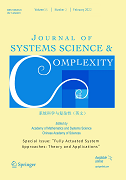KONG Xiangyu, XIA Yuanqing, HU Rui, LIN Min, SUN Zhongqi, DAI Li
This paper proposes a scheme of trajectory tracking control for the hovercraft. Since the model of the hovercraft is under-actuated, nonlinear, and strongly coupled, it is a great challenge for the controller design. To solve this problem, the control scheme is divided into two parts. Firstly, we employ differential flatness method to find a set of flat outputs and consider part of the nonlinear terms as uncertainties. Consequently, we convert the under-actuated system into a full-actuated one. Secondly, a reinforcement learning-based active disturbance rejection controller (RL-ADRC) is designed. In this method, an extended state observer (ESO) is designed to estimate the uncertainties of the system, and an actorcritic-based reinforcement learning (RL) algorithm is used to approximate the optimal control strategy. Based on the output of the ESO, the RL-ADRC compensates for the total uncertainties in real-time, and simultaneously, generates the optimal control strategy by RL algorithm. Simulation results show that, compared with the traditional ADRC method, RL-ADRC does not need to manually tune the controller parameters, and the control strategy is more robust.
